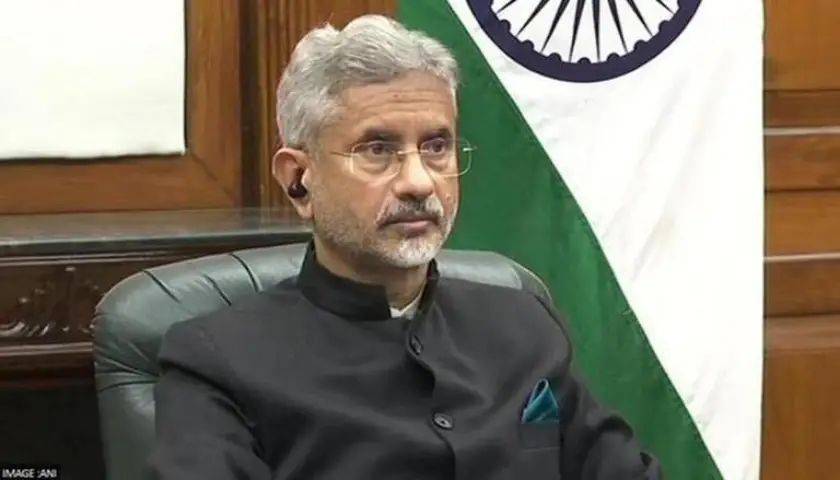In order “to realise an atmanirbhar (self-reliant) Bharat, it is important to be Bharat,” argues External Affairs Minister Dr S.Jaishankar, at the release of his latest book Why Bharat Matters. “Unless we are clear about who we are, where we are coming from, we will never be clear about where we are going. And that is the underlying message of my book.”
He said he had received a lot of “feedback, advice, second guesses” over his earlier book, ‘The India Way,’ released three years ago, and “I felt I should do something with it.”
Even the idea of using the Ramayana as the prism through which “I look at the world, was actually something I got as a suggestion during a meeting, almost a challenge, from somebody,” he said.
He felt compelled to write the book as someone who’s not just witnessed. but been “in the room, a part of the process,” of a significant transformation of India’s foreign policy over the past decade, which is not “readily grasped by everybody else.”
As the world dealt with the trends of “globalisation, or rebalancing, of multipolarity, where the impact of technology is sharper and deeper with each passing day, set against the competitiveness of international relations, the games nations play, over the past few decades,” it suffered “in these last five years, a set of shocks.”
The included the Covid 19 pandemic, the events in Afghanistan, Ukraine, and more recently West Asia, “and climate disruptions, which have a real impact on the economy, and on global politics,” he said.
“My argument is that there is strong case for re-globalisation,” and while globalisation is real and unreversible, it has evoked the need for strategic autonomy, he said. “This is a particularly favourite phrase in India, but you will increasingly hear it in many other geographies including Europe.”
This re-globalisation can be done by building more resilient supply chains, addressing the digital domain in a more transparent and trusted manner, and de-risking the over-concentrations that have emerged in the last two or three decades,” he argued, asserting that “economic choices cannot be divorced from the strategic context.”
Another significant shift took place in India over the global workspace, he said, where “there’s been profound changes over past decade. India today, with greater skills and mobility has a special contribution to make.”
India was also “seeking to board the manufacturing bus which we seem have missed before, particularly focused on sectors which are sensitive from both economic and security viewpoints,” while “promoting our culture and heritage, because in many ways it shapes our identity,” he said.
As for the transformations over the decade, “there have been some inflection points” which include “Article 370, what has changed on border with China, a new construct of foreign policy in the making, and attacks from beyond our borders which are often ideological and agenda driven,” he noted.
He said he had sought to explain that foreign policy “impacts everybody’s well-being, and at times your existence. Like during Covid.” Foreign policy choices also determine the prices of food, fuel and fertilizer. And in an increasingly unsettled world, “India was on a quest to be a Vishwamitra, a friend to the world,” which he defined as “Maximum goodwill and minimum adversaries.”
The book also looks at some “what ifs”, or explored what might have happened if India had made a few different foreign policy choices earlier when they were an option. “for this, I picked four people whose views I tried to distil: Sardar Patel, Dr Shyama Prasad Mukherjee, Dr BR Ambedkar and Minoo Masani, and their views on three critical relationships in the early years after independence: Pakistan, China, and the US.
If India had been “more Bharat” and made choices based on the recommendations of these four people instead of a leftist ideology, it might have had a “less rosy view of China,” and a less hostile view of the United States of America, even though some of the hostility was well deserved, he felt.
(The story is being republished courtesy StratNews Global)




















